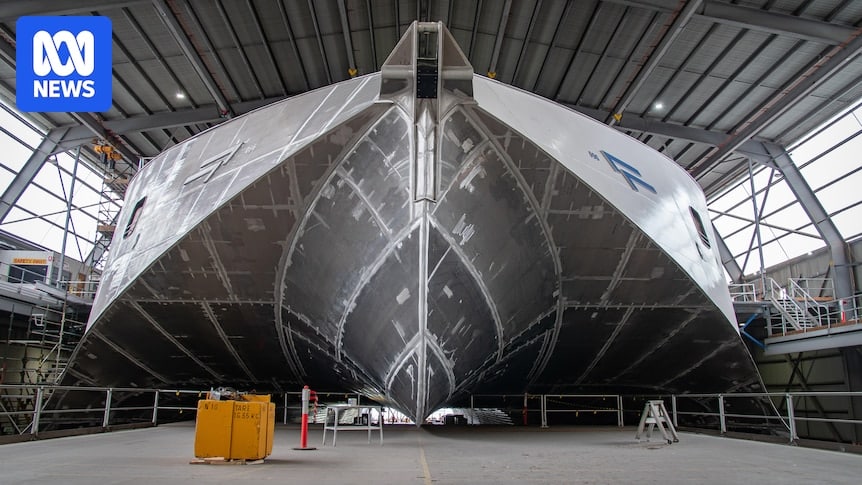Danish operator orders two electric ferries from Incat amid plans to expand the Tasmanian company
Incat Secures Historic Electric Ferry Contract

Tasmania’s Incat has been awarded a groundbreaking contract to design and construct two electric ferries for Danish operator Molslinjen, set to operate on one of Europe’s busiest maritime routes. This order, which involves two 129-meter vessels with a capacity for 1,483 passengers and 500 cars, marks the largest export contract for a manufactured good in Tasmania’s history. While the financial details remain undisclosed, the ferries are expected to operate at speeds exceeding 40 knots across the Kattegat Sea.
Innovative Design and Capacity
The new electric ferries will significantly enhance the transportation capacity between Jutland and Zealand in Denmark. Each vessel is designed to accommodate nearly 1,500 passengers and 500 vehicles, making them ideal for busy routes. Incat’s founder and chairman, Robert Clifford, emphasized the importance of this project, stating it represents a pivotal moment not only for Incat but for the global maritime industry as a whole. “They are part of a new class of high-speed, low-emission ships that are redefining what’s possible at sea,” he remarked.
Incat’s commitment to sustainability is evident in the design of these ferries. As global demand for eco-friendly transportation solutions grows, the company plans to expand its production facilities in Hobart’s Prince of Wales Bay and establish a new site further up the Derwent River. This expansion aims to double Incat’s production capacity and workforce over the next three years, ensuring they are well-prepared to meet the increasing demand for electric ferries.
Incat’s recent achievements include the launch of the HSC China Zorrilla, the world’s largest electric ferry, which features the largest electric battery ever installed on a ship. This vessel is set to operate on a 55-kilometer route between Buenos Aires and Montevideo, showcasing Incat’s leadership in the electric maritime sector. The company is also developing a diesel-electric hybrid ferry that can be retrofitted to operate fully on electric power, addressing the global need for charging infrastructure.
Expanding Workforce and Facilities
Clifford anticipates a surge in demand for electric ferries, predicting that at least 1,000 new electric vessels will be needed soon to replace fossil fuel-powered ships. He noted the challenges ahead, particularly in workforce training, stating, “We have to train, quite literally, thousands more people.” Incat’s expertise in aluminum construction positions it uniquely to meet this demand, as lightweight ships require less power, making them more efficient.
Incat aims to produce at least four electric ferries annually, with construction of the two new vessels expected to commence in the coming months. The company is targeting a delivery date in late 2027, further solidifying its role as a leader in the transition to sustainable maritime transportation. With these developments, Incat is not only contributing to the green transition but also setting a benchmark for innovation in the shipbuilding industry.
